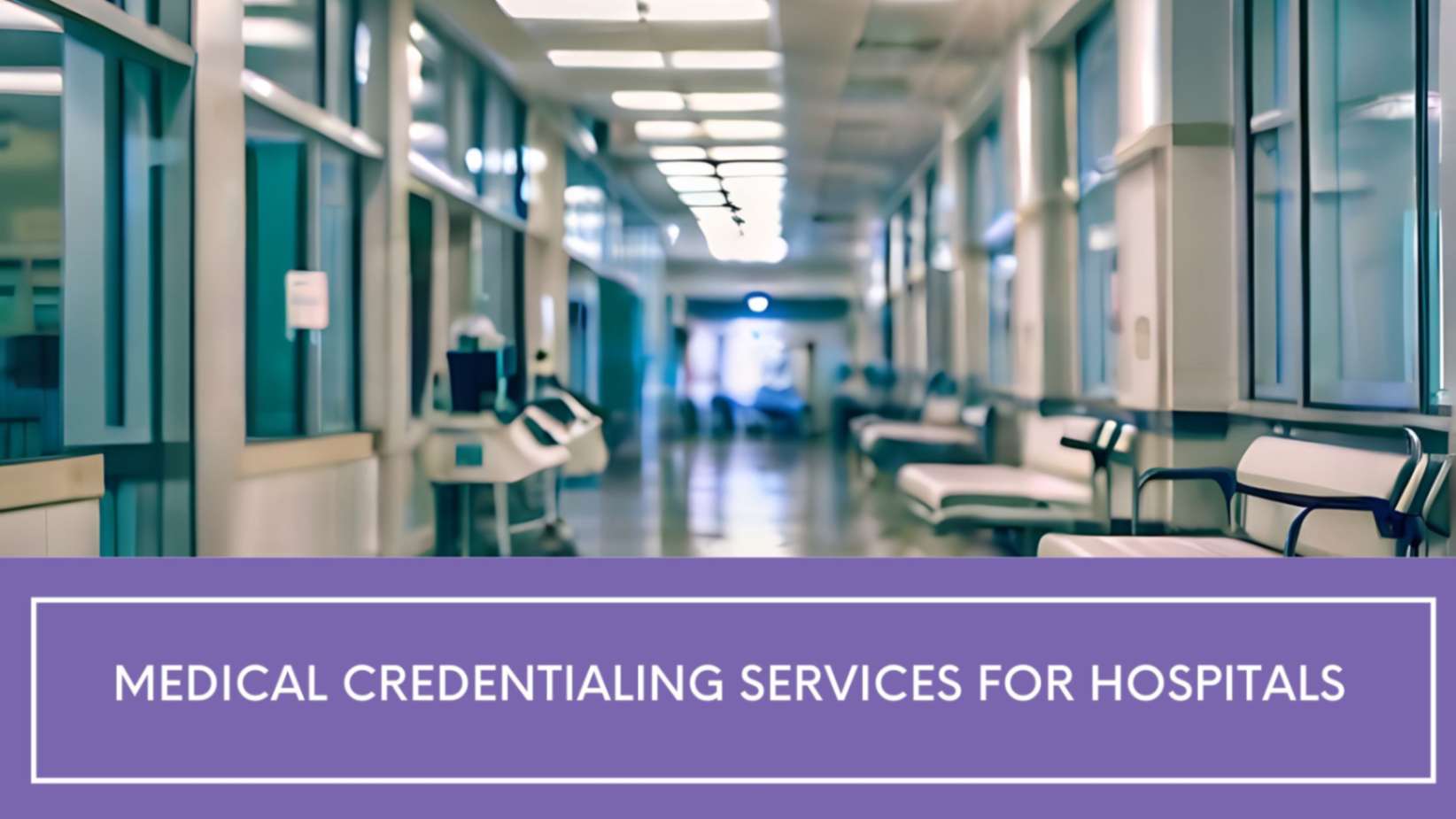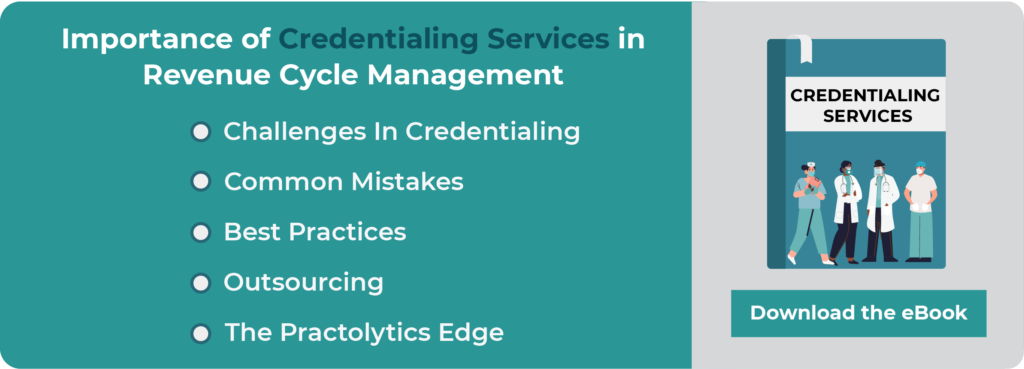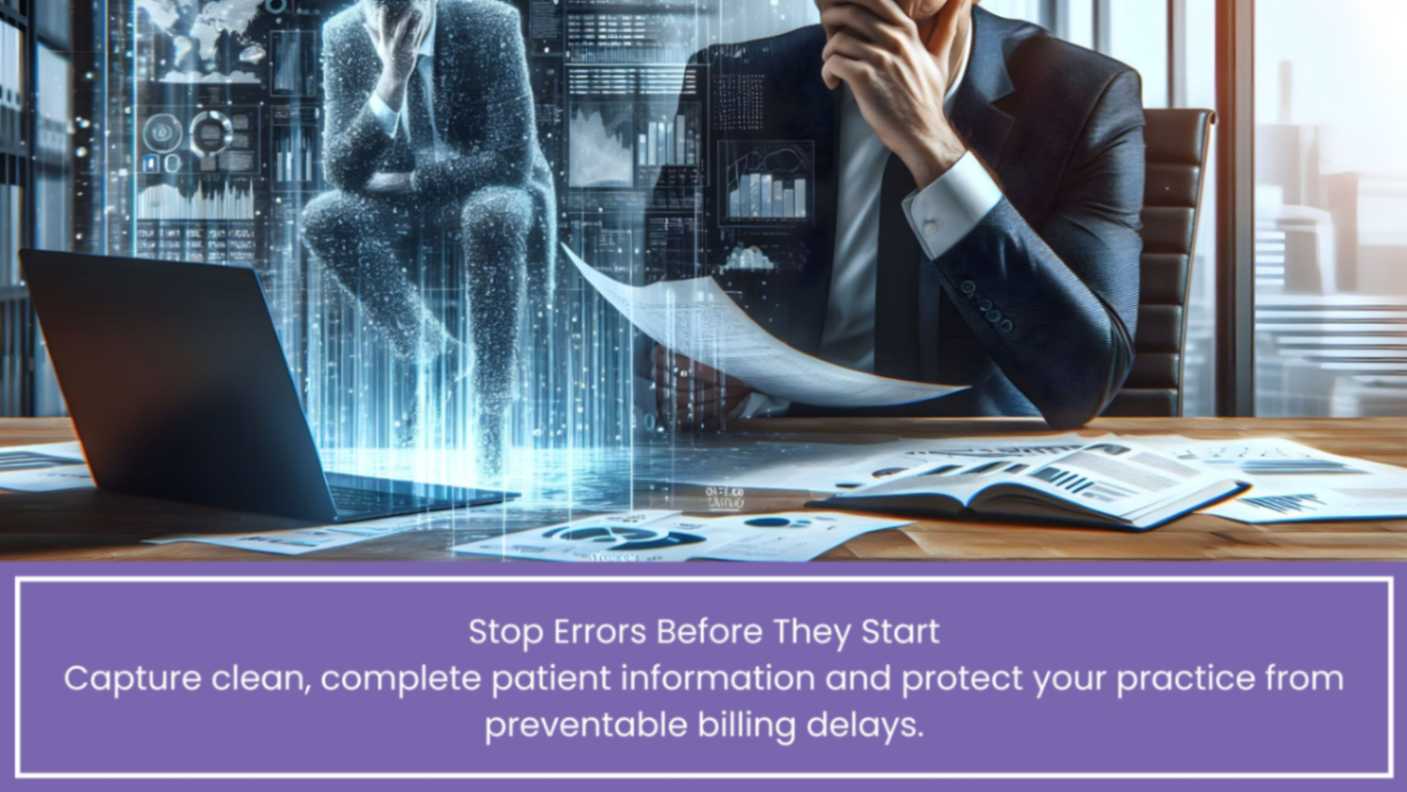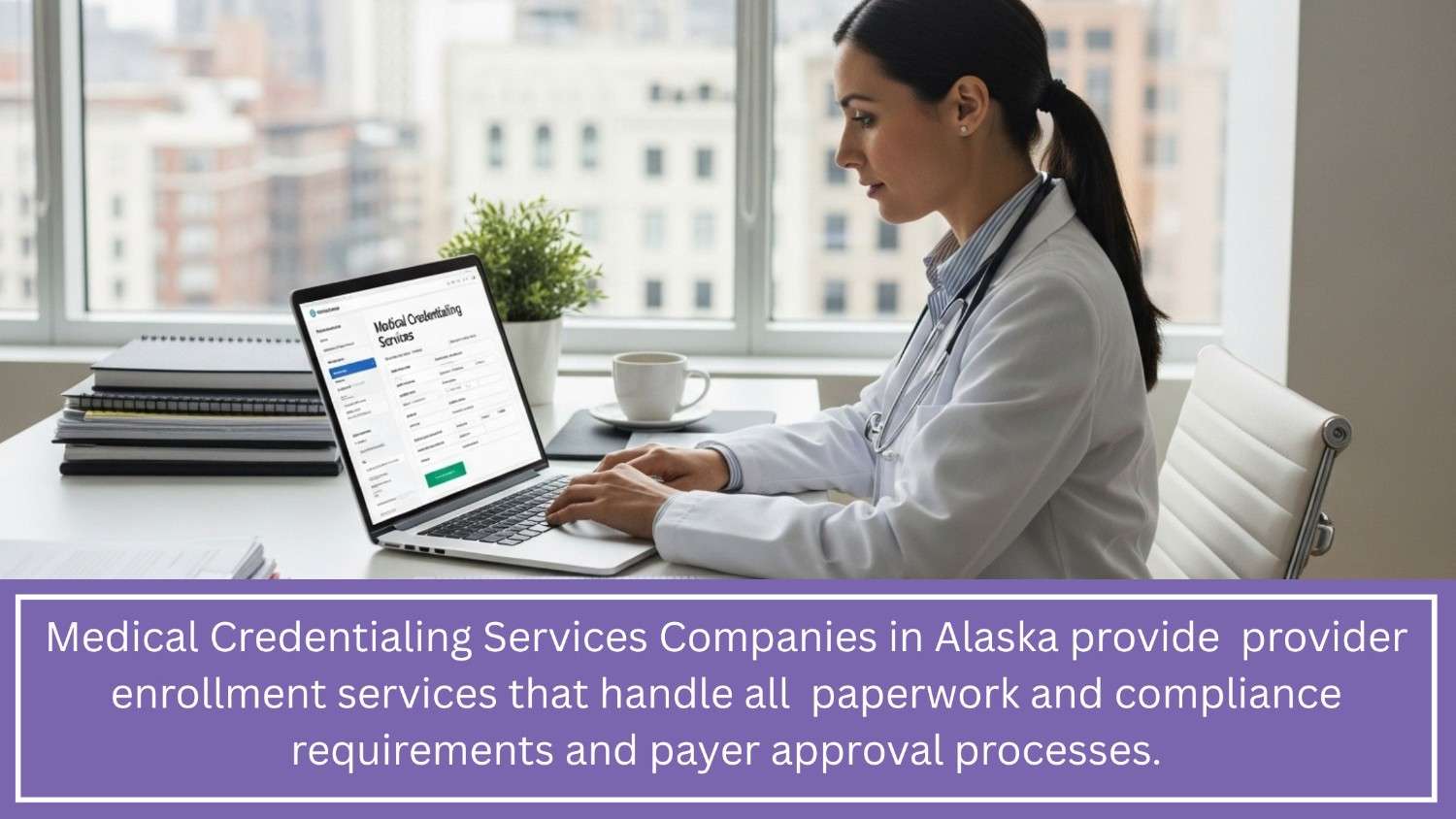Medical Credentialing Services for Hospitals
Hospitals face numerous challenges in this growing medical sector. Despite growing expenses and staffing shortages, they work to give patients the best care possible. One such difficulty is medical credentialing services for hospitals. It is a required yet frequently tiresome activity in healthcare operations. While this procedure could take some time, it must be undertaken in order to ensure the most effective outcomes.
Table of Contents
Importance of Medical Credentialing for Hospitals
Assessing healthcare providers is referred to as medical credentialing companies. This verifies their licenses, credentials, and experience. It checks their qualifications, experience, and licenses. This is for those seeking to practice medicine at a hospital. This process ensures that only qualified, competent providers care for patients. It safeguards patient safety and promotes positive outcomes.
Hospitals must have a current, thorough hospital credentialing program. It’s essential for several reasons:
- Regulations: Robust medical credentialing procedures are imposed by state and federal laws for hospitals. There are severe consequences if this is not done. These consist of penalties and Medicare and Medicaid suspensions.
- Risk management: A detailed credentialing procedure lessens the prospect of malpractice claims. It also assures that the hospital is not associated with incompetent physicians.
- Care Quality: Recruiting highly competent medical staff can help hospitals improve patient outcomes.
- Patient satisfaction: Patients want to receive care from providers who are trained and skilled. Patient trust in the hospital is increased by an effective credentialing program.
- A simple and efficient medical credentialing practice might be helpful in bringing in and keeping new doctors. It will make a hospital more attractive to them.
Issues Concerning about Internal Medical Credentialing Services
Medical insurance credentialing companies are important. But, managing it in-house can be a challenge for hospitals. Here’s why:
- Time and Resource Intensive: Credentialing involves a lot of work. It requires collecting, verifying, and maintaining documentation for each provider. This task can take a lot of time and resources. It wastes staff time that could be used on other critical areas.
- Regulations are complex. Credentialing requirements change per state, specialty, and type of provider. It takes continuous research and experience to stay current with these developments.
- Errors occur frequently in manual data entry and verification. Delays in onboarding new suppliers or the authorization of non-compliant ones could arise through this.
- Hospitals may not possess sufficient staff with medical credentials expertise.
Join Forces with an exceptional Medical Credentialing Services
Fortunately, hospitals can get past all of these. Practolytics is a renowned medical credentialing providers that they can collaborate with. The services offered by these specialized groups are extensive. They strive to increase productivity, guarantee compliance, and simplify the healthcare credentialing process.
Pros of Medical Credentialing Services for hospitals and clinics
Connecting with a medical credentialing service can help hospitals in a number of ways, such as:
- Enhanced Efficiency: Hospital Credentialing services manage the entire process. This includes the initial application and ongoing maintenance. This frees up valuable staff time to focus on other critical hospital functions.
- Improved Accuracy: Medicaid Credentialing experts ensure all documents are accurate and complete. Their expertise minimizes errors and delays.
- Lower Costs: If credentialing is done internally, it can be costly. It calls for committed personnel and assets. Outsourcing credentialing services can have reduce cost.
- The physician onboarding process can be accelerated with credentialing services. This lets them see patients sooner. This can be particularly beneficial for hospitals facing staffing shortages.
- Streamlined Communication: Credentialing management services link hospitals and providers. They ensure clear, consistent communication throughout the process.
- Reduced Risk of Non-Compliance: Best Provider Credentialing Companies track the latest requirements. They ensure hospitals comply with all regulations.
Practolytics: Your Trusted Partner in Hospital Credentialing
Practolytics is a top provider of medical credentialing services. It offers a solution tailored to hospitals’ unique needs. Practolytics, with its skilled team, can help hospitals. They are committed to quality and efficiency.
- Create and run a tailored credentialing program: Practolytics works closely with hospitals to meet their needs. They will create a tailored credentialing program that meets all regulatory requirements.
- Streamline the credentialing process: Practolytics has a user-friendly portal. It lets hospitals track application progress, manage provider data, and communicate with Medicaid credentialing specialists.
- Ensure accuracy and completeness: Practolytics has a proven track record. It will meticulously review all docs to ensure they meet all requirements.
- Expedite physician onboarding: Practolytics knows it’s vital to onboard new doctors quickly. We will work hard to ensure a smooth, efficient process.
- Maintain compliance: Practolytics will inform hospitals of any changes to credentialing requirements. We will help them comply with all regulations.
- Improve data quality: Practolytics uses analytics to find risks and improve credentialing.
Improvements to Hospitals: Exceeding Basic Services
Many credentialing companies, like Practolytics, offer more than core services. They provide value-added services that can improve hospital operations, including:
- Payor contracting support: Hospital Credentialing Companies help hospitals negotiate contracts with health plans. They can also help negotiate contracts with payers.
- Credentialing audits and gap analysis: Hospital Credentialing services can conduct regular audits. This helps to identify any potential gaps or areas for improvement.
- Physician data management: Healthcare Credentialing services help hospitals manage provider data. These services also help maintain accurate and up-to-date provider information.
- Technology solutions: Many best credentialing service companies offer innovative technology solutions. These solutions include online portals and mobile apps. These apps streamline the credentialing process and improve communication.
- Data flow is improved and manual entry is decreased through integration with hospital information systems and EHR.
- Utilizing these services can help hospitals streamline their credentialing procedures. This optimization can provide you a big competitive edge.
Hospitals Can Select the Best Medical Credentialing Partner
A crucial choice for hospitals is to pick an ideal medical credentialing partners. While choosing, consider the following factors:
- Knowledge and skill: Choose a partner with expertise in the healthcare industry. Someone with a track record of successfully working with hospitals.
- Service offerings: Verify the partner’s service offerings. Make sure the services are in line with the particular requirements of your facility.
- Technology and innovation: Pick a partner who makes use of the most recent developments in technology. This will help increase speed and streamline your credentialing process.
- Customer service: Pick a partner with exceptional customer service with strong support staff.
- Value and pricing: Assess the pricing structure. Ensure that the pricing provides a decent deal for the services rendered.
- Data security and privacy: Choose a partner who respects the law. Select someone who prioritizes data security and privacy.
Future of Medical Credentialing in Hospitals
Hospital Credentialing Companies will be influenced by several trends. These trends include:
- Increased automation: Automation will become more significant in the credentialing process. Decreasing human labor and boosting efficiency will contribute to this trend.
- Predictive modeling and data analytics: Data analytics will find possible threats. Thus improving the accuracy in credentialing. Predictive modeling can foresee future credentialing requirements and proactively address potential problems.
- Blockchain technology: Blockchain technology offers a platform for sharing and confirming credentials. This platform is transparent and safe. This technology has the potential to completely transform credentialing.
- Artificial intelligence (AI): Tools with AI capabilities can automate processes. They can also spot potential mistakes. This in turn increases the effectiveness of the credentialing process.
- Integration with other hospital systems: The hospital credentialing process will be more efficient. Data flow will be streamlined. More integration with other hospital systems, such as EHRs and HIS, will be implemented.
Conclusion
Effective and best medical credentialing services is crucial to hospital performance. Hospitals can expedite this process, lessen administrative strain, and boost physician onboarding. They can also improve patient care by collaborating with a reputable medical credentialing. It can be a provider like Practolytics.
The vital function that physician credentialing plays in hospital operations is examined in this blog post. We go over the difficulties of internal credentialing and the many advantages of working with a professional firm like Practolytics. Find out how credentialing services can lower expenses, increase accuracy, boost efficiency, and guarantee regulatory compliance. Discover how Practolytics uses technology and experience to expedite physician onboarding, streamline the process, and ultimately enhance hospital patient care outcomes.
ALSO READ – Charting the Future: Navigating 2024’s Healthcare Credentialing with Practolytics
Talk to Medical Billing Expert Today — Get a Free Demo Now!






